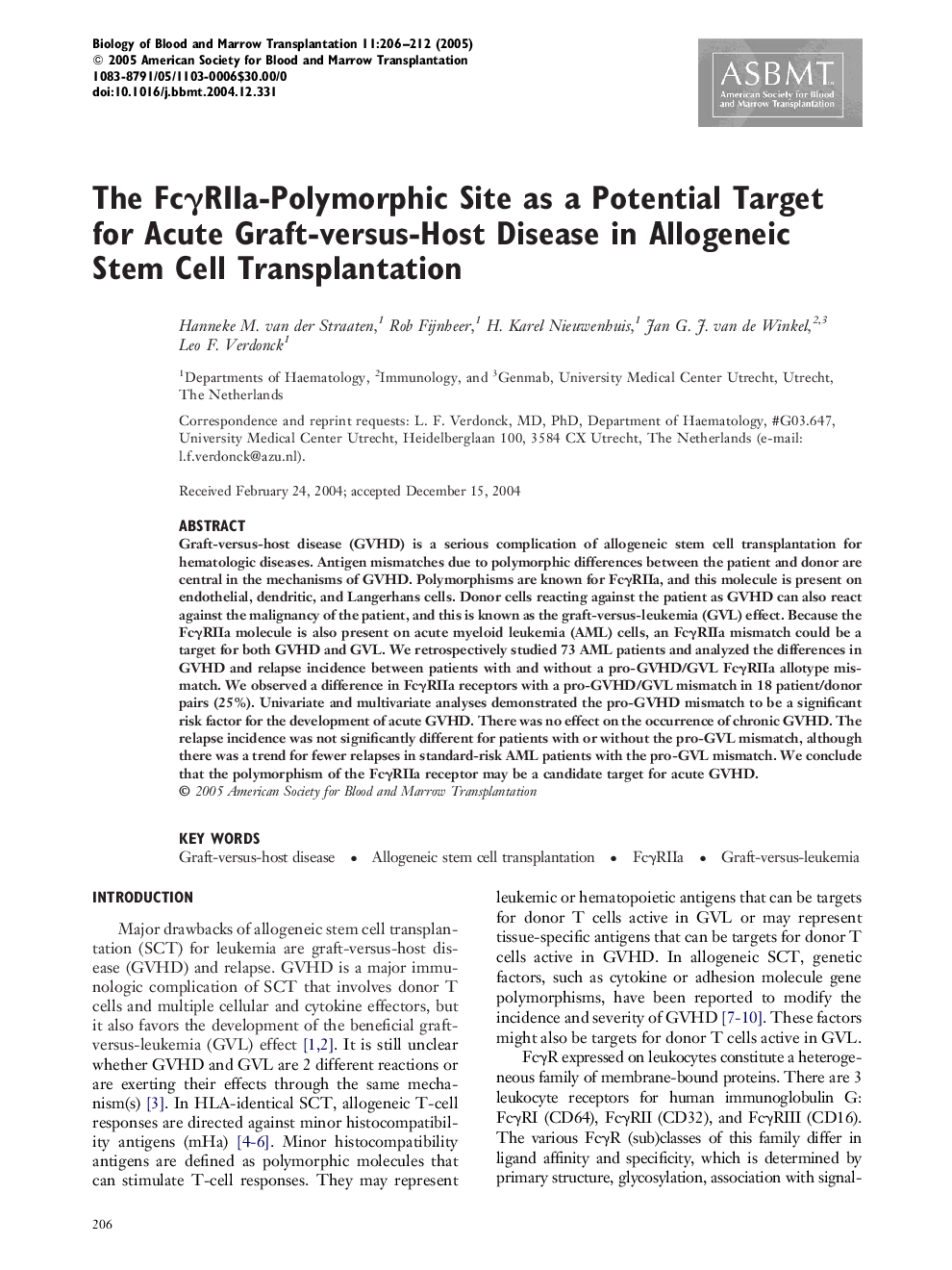| Article ID | Journal | Published Year | Pages | File Type |
|---|---|---|---|---|
| 9904253 | Biology of Blood and Marrow Transplantation | 2005 | 7 Pages |
Abstract
Graft-versus-host disease (GVHD) is a serious complication of allogeneic stem cell transplantation for hematologic diseases. Antigen mismatches due to polymorphic differences between the patient and donor are central in the mechanisms of GVHD. Polymorphisms are known for FcγRIIa, and this molecule is present on endothelial, dendritic, and Langerhans cells. Donor cells reacting against the patient as GVHD can also react against the malignancy of the patient, and this is known as the graft-versus-leukemia (GVL) effect. Because the FcγRIIa molecule is also present on acute myeloid leukemia (AML) cells, an FcγRIIa mismatch could be a target for both GVHD and GVL. We retrospectively studied 73 AML patients and analyzed the differences in GVHD and relapse incidence between patients with and without a pro-GVHD/GVL FcγRIIa allotype mismatch. We observed a difference in FcγRIIa receptors with a pro-GVHD/GVL mismatch in 18 patient/donor pairs (25%). Univariate and multivariate analyses demonstrated the pro-GVHD mismatch to be a significant risk factor for the development of acute GVHD. There was no effect on the occurrence of chronic GVHD. The relapse incidence was not significantly different for patients with or without the pro-GVL mismatch, although there was a trend for fewer relapses in standard-risk AML patients with the pro-GVL mismatch. We conclude that the polymorphism of the FcγRIIa receptor may be a candidate target for acute GVHD.
Related Topics
Life Sciences
Biochemistry, Genetics and Molecular Biology
Cancer Research
Authors
Hanneke M. van der Straaten, Rob Fijnheer, H. Karel Nieuwenhuis, Jan G.J. van de Winkel, Leo F. Verdonck,
